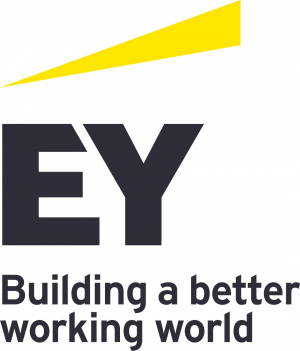Help your Brain Deal with Change - New Year Series Part 3
28.02.2017Company: Amcham
As the year is unfolding, it is constantly presenting us with experiences that take us out of our comfort zone. Andy et YOU are likely to be much better equipped to deal with ambiguity and complexity than most of the people around you. How is that? Well, it has a lot to do with how your brain operates…
Brains like stable environments; while change is their everyday business, it is not something brains are particularly fond of. Grossly simplified, the basic concern of brains is energy efficiency: 90% of the processes a brain is busy with are about keeping a stable internal environment. This is completely independent of willful control, and requires no input from our prefrontal cortex. The biochemistry is complex, but you get the idea.
We have all heard that “being out of our comfort zone” is actually a good thing, and it is certainly true that this is can be a creative space. On the other hand, this is the very thing our brain is avoiding – which is why it will revert to its old ways of doing things, if given half a chance. For the simple reason that it costs more energy, brains don’t like change. They look for the most effective, energy-saving way of operating. There is, however, one powerful and under-appreciated exception: we can outsmart this mechanism simply by connecting to a higher idea(l): a self-concept, an aspiration of who we want to be, values, or goals. In short: as brains go, meaning beats efficiency!
People who feel in charge of their lives tend to have that higher ideal, and most of those tend to be leaders, if not all in business. People who have in practice connected events and personal experiences to bigger goals (or better still, to individual ambitions) can help others tone down their feelings of losing balance and keep making an impact. It requires some translating, hard thinking, AND having really listened to other people in the first place, but none of this should surprise leaders...
Having a personal ideal to live up to, and working on projects in which these ideals can materialize is a powerful antidote to experiencing feelings of helplessness and anxiety. In panic mode, we lose all sight of our long-term, deeper ambitions, and caveman-esque instincts take over. This is when we need to actively reconnect with the “deeper fibers” to regain our balance, so that we can start operating rationally again. This requires a little practice...
Now “balanced” just like “centred” may not sound very sexy in view of current lingo of innovation, complexity, etc. Yet the centre is no longer the boring, comfortable place for beige-clad people. It is the place between all chairs; and it is a little harder to be the voice of reason that carries responsibility, than producing ready-made opinions and slogans. As comedian Dieter Nuhr puts it: “Now that the bullying mainstream is gathering at the edges, perhaps rational people have to meet in the centre: The place where things are not so simple, because from there, one can see both sides and has to make careful evaluations. If more people embraced this extra effort in 2017, it could become a better year.”
While what we have in our part of the world is pretty good, and definitely by comparison to other parts of the world, it is also in need of a major overhaul. We somehow know that what our times ask from the systems – and expectations! – we have created cannot be achieved by fine-tuning. This is true almost regardless of whatever system we (dare to) look into: education, healthcare, pensions… to mention just a few that we are all aware of. We have a chance to renew our commitment to some fundamental tenets, and find out if we are willing to embrace systemic change. This means facing our insecurities, controversial debate, tough negotiations and ultimately, real decisions (not all of them “both-and”, but real “either-or”:)).
This would be greatly aided by higher level of debate, and a political class that was more interested in taking a lead and actively shaping the future, instead of merely administering and problem solving (which sounds better than trouble shooting or fire-fighting, but is just the same…). What we observe in debates today is what happens when a scarcity mind-set takes over: simplistic, conflict-oriented binary mine-yours, us-them thinking, with a fear-driven, “caveman” disqualification of “them”. This isn’t what will allow us to successfully address the challenges of our times. We need to replace these narratives with alternatives aligned with the natural complex world in which we live.
Annette is a reflection partner for leaders, managers, and business owners - people who create contexts for others, and are committed to leading by example. She writes in her new blog at www.anedge4u.com, and regularly publishes on Linkedin.
On becoming the change - timeless messages for the New Year. Part 2 : Keeping anxiety in check
On becoming the change you want to see in the world - timeless messages for the New Year. Part 1: Your Communication
Tags: Business Development | Education |







